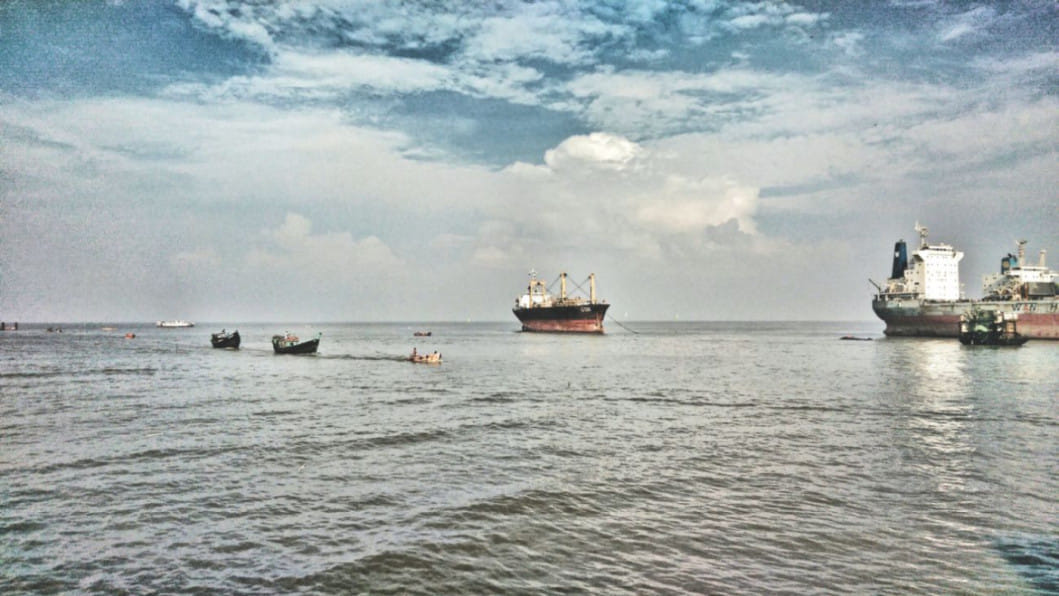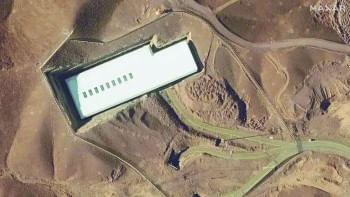Sustaining the oceans as they sustain us

Oceans are a wonder to humans, not only because of their vastness or that they cover more than 70 percent of the Earth's surface and constitute more than 95 percent of the biosphere, but because of the fact that the wonders they contain below their blue surfaces are beyond imagination. We know only parts of them, but the larger parts of the world's oceans are still unexplored. Oceans remind us that we are part of something bigger, that we all are inherently connected. Every year, June 8 is observed as World Oceans Day to celebrate the oceans' essential wonders, calling on all of us not to lose sight of their value when determining their fate.
It was the 1987 Brundtland Report, prepared by the Brundtland Commission on environment and development, which noted that the oceans lacked a strong voice compared to other aspects of nature. As a follow-up, the concept of a day dedicated to them was proposed at the 1992 United Nations Conference on Environment and Development in Rio de Janeiro, and since 2008, the day has been observed on June 8 every year. It supports the implementation of Sustainable Development Goals (SDGs) and fosters public interest in protection of the oceans and sustainable management of their resources.
The importance of oceans in human lives can hardly be overemphasised. They are our life source, supporting humanity's sustenance and that of every other organism on Earth. They produce at least 50 percent of Earth's oxygen, are home to most of the world's biodiversity, and are the main source of protein for more than three billion people around the world. The oceans are key to the global economy: ocean-based industries are projected to employ around 40 million people by 2030. More than 80 percent of global trade is done through oceanic routes. Well-preserved oceans have a major role to play in ensuring food security for humans; in fact, they will be a critical source for feeding an estimated global population of nine billion by 2050. Their contributions to human livelihoods and global economic growth need to be recognised.
Blue economy, based on the oceans and their resources, can be a driving force for global economic growth. The world today faces multiple challenges of food insecurity, climate change, conflicts, economic sluggishness, and financial uncertainties. An integrated response and an urgent transition to a sustainable path is quite necessary right now. In 2012, a global blue economy strategy was adopted to unleash the potential of oceans for human prosperity and development. Blue economies may fuel economic growth via fishery development, aquaculture, tourism, water sports, cruise tourism, blue energy and biomass, ocean-based renewable energy, biotechnology and marine genetic resources, etc.
However, with all their potential benefits, the oceans now face severe problems and challenges. About 90 percent of their big fish populations are now depleted and about half of the coral reefs are destroyed. Approximately 11 million tonnes of plastic enter the oceans annually—equivalent to dumping 2,000 trucks full of plastic waste into oceans, lakes and rivers every day, according to UNEP. About one-third of the fish caught for human consumption is contaminated with plastic. By 2050, there could be more plastic than fish in the oceans. More than 100,000 marine mammals and one million seabirds are killed by marine plastic pollution every year.
Bangladesh, a low-lying country in the Ganges-Brahmaputra delta, faces significant challenges related not to an ocean, but to a sea, particularly the Bay of Bengal. Because of climate change, the sea level in the country is predicted to rise by up to 0.30 metres by 2050, resulting in the displacement of 900,000 people, and by up to 0.74 metres by 2100, resulting in the displacement of 2.1 million people, according to research. Rising sea levels, exacerbated by climate change, are causing coastal erosion, saltwater intrusion into freshwater sources, and inundation of low-lying areas. These changes threaten livelihoods, agriculture, and human settlements.
But at the same time, Bangladesh has the potential to develop a blue economy that can make significant contributions to the country's economic growth, poverty reduction, food and nutrition security, mitigation and adaptation of climate change, and generation of sustainable livelihoods. Such an economy may entail maritime trade and shipping, coastal shipping and feeder services, tourism, fisheries and sea foods, mariculture, marine aquatic products, oil and gas, ocean renewable energy, sea salt production, etc. Developing a blue economy in Bangladesh would require a balanced approach between conservation, development, and utilisation of marine and coastal ecosystems. The transition to a blue economy would encompass identification of various maritime economic functions and fundamental and systematic changes in its policies, regulatory management, and governance frameworks.
Today, humanity faces some of the greatest threats ever to its blue planet: the climate and the biodiversity crisis. We need a healthy ocean system for our survival, and thus we have to catalyse action to protect the oceans and climate. The world will have to strengthen the 30x30 movement - protecting at least 30 percent of the blue planet by 2030. The ongoing Third United Nations Ocean Conference in Nice, France (June 9-13) is aimed at finding solutions to conserve and sustainably use oceans, seas, and marine resources. Let's hope we find those solutions before it is too late.
Selim Jahan is former director of the Human Development Report Office under the United Nations Development Programme (UNDP) and lead author of the Human Development Report.
Views expressed in this article are the author's own.
Follow The Daily Star Opinion on Facebook for the latest opinions, commentaries and analyses by experts and professionals. To contribute your article or letter to The Daily Star Opinion, see our guidelines for submission.

 For all latest news, follow The Daily Star's Google News channel.
For all latest news, follow The Daily Star's Google News channel. 







Comments